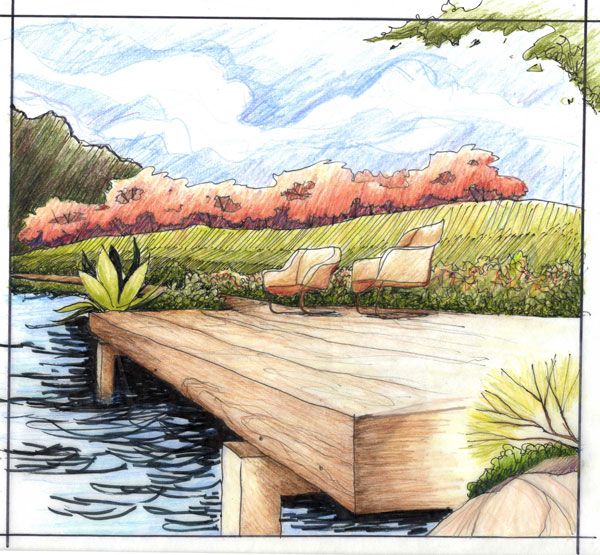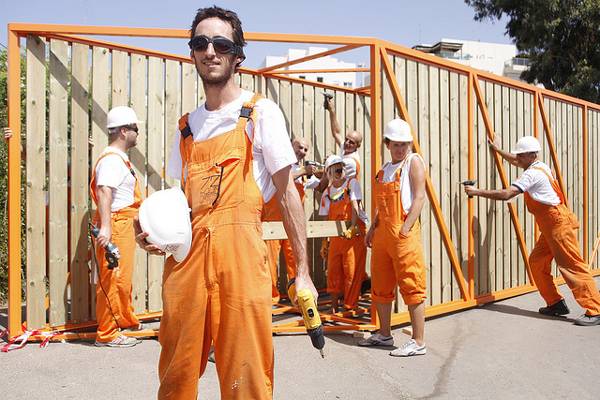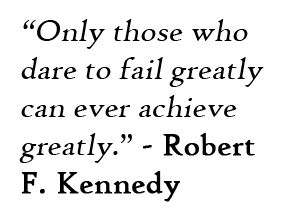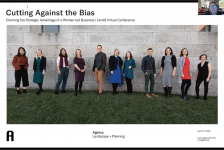Getting an education as landscape architecture students is tough, enjoyable but tough. So make the most of it and get the rewards most students will miss out on, even the top ones. Getting a degree in Landscape Architecture is rewarding, challenging and at times frustrating beyond belief. The years at university are so packed with academic work that it is easy to forget to take advantage of all the opportunities granted to you. Here are the top 10 things landscape architecture students should make sure they do before graduating.
Landscape Architecture Students, Listen up!
1. Get Away from Your University Once you have a feel for design culture and style in your area, get out. Go away, preferably far, far away and see how it’s done somewhere else. Studying abroad is a great way to do this and also get credits, room and board and field trips to surrounding areas. Another option is to just go. Take a quarter off. Set up informational interviews at firms in London, Egypt, or Addis Ababa and learn about their styles, design challenges and how their culture influences design. Comparing, contrasting and learning from the design practices of another place are essential to a landscape architecture education.
2. Find an Internship In your second or third year take advantage of internship opportunities through the landscape architecture department. University is a great time to try out a few different kinds of work to see which you like or can’t stand

Get yourself an internship. Photo credit: shutterstock.com
before you graduate. Internship opportunities are everywhere, especially pay attention to guest lecturers and reviewers. If you like what they have to say, go up and ask about opportunities in their firms. Internships give you invaluable experience with less pressure since you’re there to learn. That being said, there are such things as bad internships; don’t let them turn you into a CAD monkey, especially if you’re not getting paid.
3. 100% Complete a Project the Night Before Reviews When say finished I mean FINISHED. Posters printed, models assembled, plans rendered and presentation practiced. Learning to manage the amount of time you have for a project is among the most important lessons in your landscape architecture education. Also, sleeping the night before reviews are important. Reviewers can tell if you’ve had ten cups of coffee and haven’t slept in 30 hours and it’s unprofessional.
4. Learn to Work On a Team Nothing can turn friends into foes faster than a group project. Learning to work on a team does not mean “learn to get along with everybody” it means learning how to make good decisions quickly, advocating for your ideas or shutting up and letting others speak. It means learning to tell a friend that their idea is terrible for these reasons and going with the best concept even if it isn’t yours.

The smiling faces would indicate that this was at the beginning of the team project! Photo credit: shutterstock.com
5. Attend Landscape Architecture Social Gatherings Social gatherings are fun and a great way to meet other students, professionals and professors in a less formal setting.

LAN team leader Brett Lezon (far left) with renowned landscape architect Laurie Olin at an ASLA event. Photo credit: Cameron Rodman
Even with all of the great digital tools at our fingertips, sometimes fingertips and a pen are the best way to convey an idea. Some university programs focus on hand graphics more than others and if yours is light on the pen-to-trace side of things, seek out a professor, mentor or fellow student with a beautiful hand and ask for pointers.

Drawing featured in our famous Sketchy Saturday. Image credit and artist: Lily Mank
The more mentors the better, try to establish relationships with both a professional mentor and a student mentor in your first year. If your school doesn’t have a program in place, the landscape architecture department likely keeps records of alumni that are OK with being contacted about becoming a mentor. Cultivate and maintain relationships with your mentors, ask questions, get their opinion on your projects and invite them to your reviews.
8. Complete an Interdisciplinary Project In your post-university career, it’s likely that you will be working with Urban Planners, Architects, Engineers, Contractors, Ecologists and many, many more. Stereotypes notwithstanding, working with people in other fields can be fun and will definitely broaden your design education.

One of the greatest live architectural events/projects on the planet. 72 Hour Urban Action. Photo credit: Mor Arkadir
Informational interviews are an excellent low-pressure way to check out firms. The ability to say “
Hi my name is ______, and I’m a landscape architecture
student at _______” wields a serious amount of power to get your foot in the door. Designers are usually flattered that you’d want to add to your education through the lens of their business. After graduation, you can still go on informational interviews but firms are more likely to put a request on hold since they will know you’re job searching.

Great words, that should be dwelled upon, ingrained on the mind and used to inspire you into action.
I’m not saying you should try to bomb a project; intentionally failing is not ok. But bombing a project once is a reminder that it is not the end of the world if you fail. Learn to let go of a failure and make a better product next time. It’s university, it’s ok to take chances and make mistakes! – A Landscape Architecture education involves a lot more than just attending class and turning in projects. Being a student provides you with opportunities that won’t necessarily be available post graduation so make sure you take advantage and use your student status to the fullest! What would you add to this list of recommendations for student landscape architects?
Recommended Reading:
Article by Caitlin Lockhart Return to Homepage Featured image: shutterstock.com
Published in Blog

















